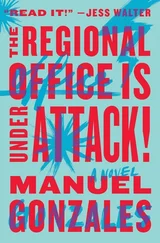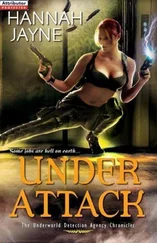But there was one thing that no one could provide: any guarantee of safety. On 7 October 1940 seven shelterers were killed and thirty-three injured at Trafalgar Square station when an explosion caused the concrete and steel casing over an escalator to collapse, bringing down an avalanche of wet earth. The next day nineteen were killed and fifty-two injured – most of them refugees from Belgium – at Bounds Green station in the northern suburbs, when a house next to the station was hit by a bomb and toppled over, causing a tunnel to collapse and bury the victims in masonry and debris.
On 14 October a heavy bomb fell on Balham High Road in south London just above a point where underground tunnels intersected. It caused a sixty-foot crater to open, and immediately a double-decker bus fell into it. Below ground a deluge of ballast and sludge, dislodged by the explosion, engulfed the platforms where six hundred people were sleeping, and gas from fractured pipes seeped in. Sixty-eight were killed, including the stationmaster, the ticket-office clerk and two porters. Many drowned as water and sewage from burst mains poured in, soon reaching a depth of three feet. The toll would have been even higher had not two LPTB staff wrenched open the floodgates. Seven million gallons of water and sewage had to be pumped out before salvage work could begin. For weeks afterwards those sheltering in nearby stations along the Northern Line were aware of a ‘ghost’ train that slipped quietly along the track around midnight clearing the debris of the Balham disaster, a tragic cargo that included shoes, bits of clothing, handbags, toys and other heart-stopping possessions.
At a minute to eight in the evening of 11 January 1941 a bomb fell on the booking hall of Bank station in the City, and a massive explosion tore through the station. It blew a massive two-hundred-foot crater in the road, which was so large that a bridge had to be built over it to get traffic flowing again. Many passers-by were killed, but in attending to them the rescue services did not realise at first that there was even greater carnage underground. The blast from the bomb ‘travelled through the various underground passages, and in particular forced its way with extreme violence down the escalator killing those sleeping at the foot of it at the time, and killing and injuring others sheltering on the platform opposite the entrances’, while some people were hurled into the path of an incoming train. A total of 111 people were killed at Bank, including fifty-three shelterers and four underground staff. An inquiry into the disaster opened on 10 February 1941. ‘It is difficult to convince people that even when they are 60 or 70 feet underground, they are not safe,’ remarked the chair. It had been alleged that inadequate sanitation was a key factor, as there were only a few chemical toilets in the station, and since these were soon overflowing, many declined to use them, and were queuing to use the conveniences in the booking hall when the bomb fell. The inquiry found that in fact no deaths and only a few minor injuries could be attributed to this. There was no first aid post on the platform, and there was no emergency lighting. There had been other recent ‘incidents’ in the area (notably on 29 December 1940), so roads were closed and access to the station was difficult, while fallen debris cut off access to the Central Line (both the Central and Northern Lines pass through Bank), meaning that it had taken doctors and stretcher parties more than an hour to reach it. While the injured waited for the medical services to arrive, a Hungarian refugee doctor, Dr Z.A. Leitner, who had himself been injured in the blast, gave more than forty morphia injections as he ministered to the injured single-handed in the gloom and choking dust. At the inquiry the hero doctor paid tribute to those he had helped. ‘I should like to make a remark. You English people cannot appreciate the discipline of your own people. I want to tell you, I have not found one hysterical, shouting patient. I think this very important, that you should not take such things as given – because it does not happen in other countries. If Hitler could have been there for five minutes with me, he would have finished the war. He would have realised that he has got to take every Englishman and twist him by the neck – otherwise he cannot win this war.’
* In fact the much-feared ‘trogs’ would be found in the Ramsgate caves; with the approval of Herbert Morrison they were forcibly ejected.
The Warden. For some time before the blitz he was regarded by most of his charges with anything from cool indifference to active suspicion as a Nosey Parker.
But it’s ‘Saviour of ‘is country’
When the guns began to shoot.
Front Line 1940–1941: The Official Story of the CIVIL DEFENCE of Britain (1942)
I detect in myself a certain area of claustrophobia. I do not mind being blown up. What I dread is being buried under huge piles of masonry and hearing the water drip slowly, smelling gas creeping towards me and hearing the faint cries of colleagues condemned to a slow and ungainly death.
Harold Nicolson’s diary for 24 September 1940
‘There is no public record of the labours of the inter-departmental Committees, of the Boards of Inquiry, of the Treasury minute, of the final Cabinet minute, which settled upon the word “incident” as the designation of what takes place when a bomb falls on a street,’ wrote John Strachey. ‘Yet how important it was to select such a word … So when the time came, Whitehall had a word for it … “Incident” cannot be held to convey very graphically the consequences of a bomb. Just the contrary. The word is wonderfully colourless, dry and remote: it touches nothing which it does not minimise. And this, it may be supposed, was what recommended it conclusively to the authorities. It formed an important part of their policy of reassurance. For while anyone might be frightened of a bomb, who could be frightened of an incident?’
Strachey, the son of the owner and editor of the Spectator , was an old Etonian, highly intelligent and with a chequered political past. In February 1931 he and his fellow Labour MP Oswald Mosley had resigned from the Parliamentary Labour Party when Mosley’s expansionist plans to end unemployment were rejected, but by July, repelled by Mosley’s growing fascism, Strachey had left Mosley’s New Party. The following year his application to join the Communist Party of Great Britain was rejected, probably because he was regarded as an unreliable intellectual, but he called himself a Communist and wrote as one throughout the thirties. His extremely influential (and best-selling) book The Theory and Practice of Socialism , for Victor Gollancz’s Left Book Club (of which he was one of the founders), was published in 1936. By April 1940, disillusioned by the Nazi-Soviet Pact, Strachey broke with the CP, and on the eve of the blitz he signed up as an ARP warden, an experience he would lightly fictionalise in his book Post D , published while the blitz was still raging. It is a detached, controlled, probing account, infused with what W.H. Auden called ‘the surgeon’s view of pain’, and the New Statesman thought it so good that it ‘killed anything else in range’. In his ARP role Strachey attended many ‘incidents’. Ford, his alter ego in the novel, had got into ‘this ARP business’ by doing a few night-time watches at the suggestion of his formidable Chelsea landlady, herself an ARP warden.
At first he took part in watches and patrols on the next night and on subsequent nights. At first his equipment consisted in a borrowed tin hat – the one real necessity. But gradually other pieces of equipment came his way: a badge, an armlet; a borrowed torch. At a certain point in this development he was duly enrolled. Later it was suggested that he should become a fulltime paid warden (wages £3.5s a week for men, £2 for women). This involved being on duty every night but one a week, and being available for duty in the event of a raid (‘on call for sirens’) all day. At that period raiding was continuous every night, and there were usually three or more raids each day. Hence full-time wardens could not do anything else. As Ford had several other activities which he was loth [sic] to abandon, he decided to become an unpaid warden, on duty four nights out of five, but not on duty during the day. After enrolment he was duly provided with uniform and full equipment. In his borough, this consisted of a suit of overalls, a webbing belt carrying on it a message pad and a couple of bandages for first aid purposes; a torch hung round his neck by a strap; a steel helmet; a civilian duty gas mask.
Читать дальше












